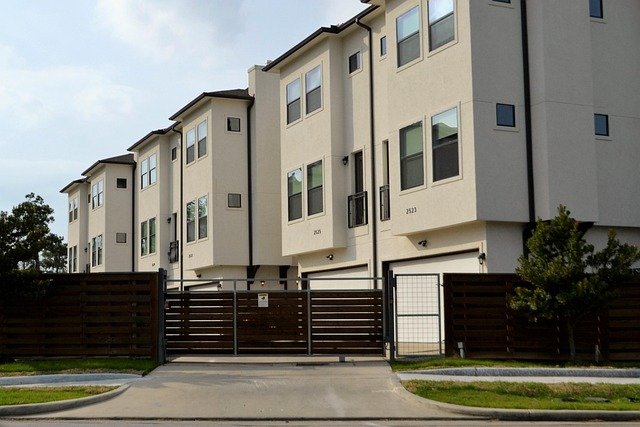Essential Information About Cremation: Understanding Costs, Services, and the Process for Informed Decisions
Making end-of-life arrangements requires careful consideration of various factors, from personal preferences to financial implications. Cremation has become an increasingly popular choice for families seeking a meaningful and often more affordable alternative to traditional burial. Understanding the process, costs, and available options helps ensure you make informed decisions during an emotionally challenging time while honoring your loved one's wishes appropriately.

How Does the Cremation Process Work?
The cremation process overview begins with proper authorization and preparation of the deceased. A licensed funeral director typically coordinates the initial steps, including obtaining necessary permits and death certificates. The body is placed in a cremation container or casket, then transferred to a crematory facility where it undergoes high-temperature reduction in a specialized chamber called a retort.
The entire process takes approximately two to three hours, with temperatures reaching 1,400 to 1,800 degrees Fahrenheit. Afterward, any remaining bone fragments are processed into fine particles, commonly referred to as cremated remains or ashes. These remains are then placed in a temporary container or urn chosen by the family, ready for final disposition according to their wishes.
What Factors Influence Cremation Pricing?
Understanding cremation costs involves examining several variables that affect the final price. Direct cremation, which excludes additional services like viewing or ceremony, typically represents the most economical option. However, costs increase when families choose additional services such as embalming, memorial services, upgraded urns, or specialized transportation.
Geographic location significantly impacts pricing, with urban areas generally commanding higher fees than rural communities. The chosen crematory, level of service, and timing can also influence overall expenses. Some families opt for payment plans or pre-need arrangements to manage costs more effectively while ensuring their preferences are documented and honored.
How Do Cremation and Burial Options Compare?
Comparing cremation and burial involves evaluating multiple factors beyond cost considerations. Traditional burial typically requires purchasing a casket, cemetery plot, headstone, and ongoing maintenance fees, while cremation offers more flexibility in terms of final disposition. Cremated remains can be scattered, buried, placed in a columbarium, or kept by family members.
Environmental considerations also play a role in this comparison. Cremation generally requires less land use and eliminates the need for embalming chemicals, though it does consume energy during the process. Traditional burial preserves the body but requires more resources including cemetery space, casket materials, and potential groundwater considerations from embalming fluids.
What Should You Consider When Selecting a Provider?
Key considerations when choosing a cremation provider include licensing, reputation, facilities, and service offerings. Verify that the crematory holds proper state licenses and maintains industry certifications. Research online reviews, ask for references, and visit facilities when possible to assess cleanliness, professionalism, and equipment condition.
Transparency in pricing and procedures is essential when evaluating providers. Reputable cremation services provide detailed price lists, explain their processes clearly, and answer questions thoroughly. Consider whether the provider offers additional services you might need, such as memorial planning, grief support, or assistance with death certificate copies and other administrative tasks.
What Memorial and Personalization Options Are Available?
Personalization and memorial options with cremation offer families numerous ways to honor their loved one’s memory. Traditional services can still be held before or after cremation, allowing for viewing, religious ceremonies, or celebration of life gatherings. Many families choose to divide cremated remains among multiple family members or create memorial jewelry incorporating small portions of ashes.
Memorial options include scattering in meaningful locations, burial in family plots, placement in columbarium niches, or creating memorial gardens. Some families opt for biodegradable urns for water or ground burial, while others choose decorative urns for home display. Memorial services can be held at various locations and times, providing flexibility for family members traveling from different areas.
How Do Cremation Service Costs Compare Across Providers?
| Service Type | Provider Category | Cost Estimation |
|---|---|---|
| Direct Cremation | Local Funeral Homes | $800 - $2,500 |
| Direct Cremation | Chain Providers | $600 - $1,800 |
| Full Service Cremation | Traditional Funeral Homes | $2,000 - $5,000 |
| Online/Direct Providers | Neptune Society, Cremation Solutions | $1,200 - $3,000 |
| Religious/Cultural Services | Faith-Based Providers | $1,500 - $4,000 |
Prices, rates, or cost estimates mentioned in this article are based on the latest available information but may change over time. Independent research is advised before making financial decisions.
Understanding cremation services requires careful consideration of personal, financial, and cultural factors. The process itself is straightforward and regulated, while costs vary significantly based on chosen services and geographic location. Comparing cremation and burial options helps families make decisions aligned with their values and circumstances. Selecting the right provider involves researching credentials, services, and transparency in business practices. Memorial options provide flexibility in honoring loved ones according to their wishes and family traditions. Taking time to research and understand these elements ensures that final arrangements reflect both practical needs and meaningful tributes to those we cherish.




